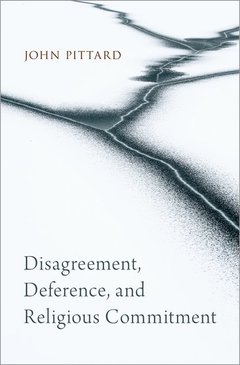Disagreement, Deference, and Religious Commitment
Langue : Anglais
Auteur : Pittard John

The striking extent of religious disagreement suggests that religious conviction is very often the result of processes that do not reliably produce true beliefs. For this reason, many have argued that the only rational response to religious disagreement is to adopt a religious skepticism that eschews confident religious belief. Disagreement, Deference, and Religious Commitment contests this skeptical conclusion, explaining how it could be rational to maintain confident belief even in the face of the epistemic worries posed by disagreement. John Pittard argues against the commitment to rigorous epistemic impartiality that underlies the case for disagreement-motivated religious skepticism, while also critiquing approaches to disagreement that allow for the unproblematic privileging of one's first-person perspective. He emphasizes the importance of having rational insight into reasons that favor one's outlook; however, he challenges narrowly intellectualist accounts of insight, arguing that many of the rational insights crucial to assessing religious outlooks are not achievable through analytical reasoning, but only through relevant emotional experiences. In the second part of the book, Pittard considers the implications that accepting the impartiality requirement favored by "disagreement skeptics" has for religious commitment. He challenges the common assumption that a commitment to rigorous epistemic impartiality would rule out confident religious belief. He further argues, however, that such an impartiality commitment would likely make it irrational to pursue one's favored form of religious life and might prevent one from rationally engaging in any religious or irreligious way of life whatsoever. This troubling conclusion gives reason to hope that the arguments against impartiality are correct and that one can justify conviction despite widespread disagreement.
John Pittard is an Assistant Professor of Philosophy of Religion at Yale Divinity School, with a secondary appointment in the Yale Department of Philosophy. He received his Ph.D. from Yale, his M.Div. from Princeton Theological Seminary, and his A.B. from Harvard. He works in epistemology and the philosophy of religion.
Date de parution : 11-2019
Ouvrage de 360 p.
16.2x24.3 cm
Disponible chez l'éditeur (délai d'approvisionnement : 21 jours).
Prix indicatif 95,31 €
Ajouter au panier
© 2024 LAVOISIER S.A.S.



